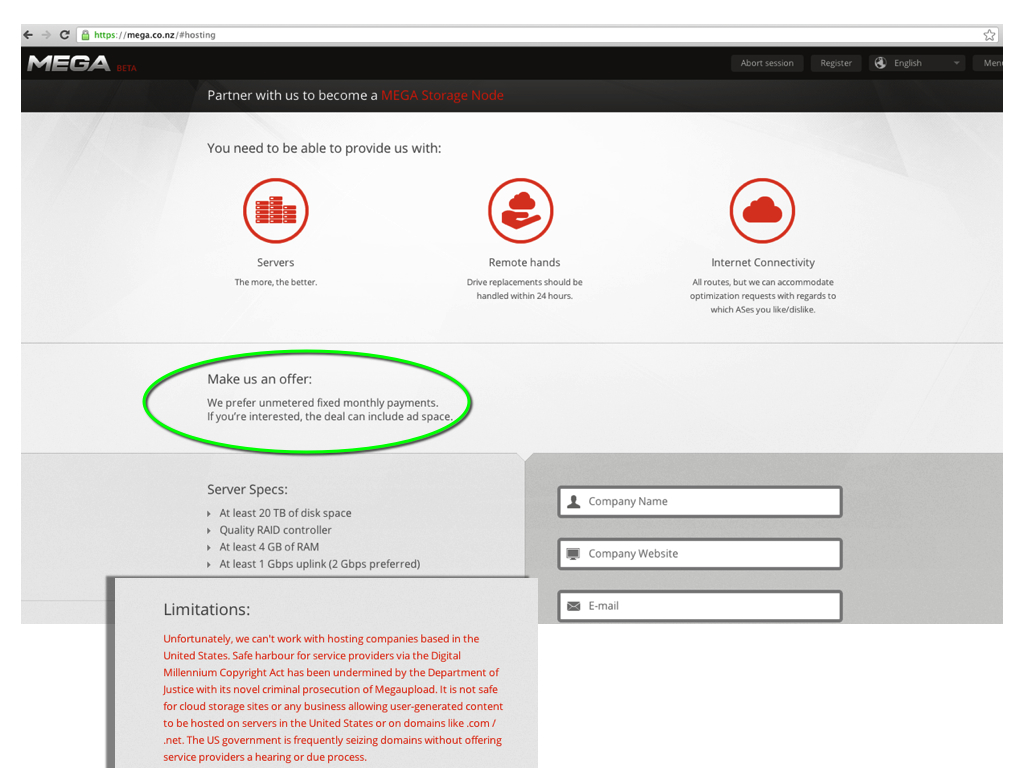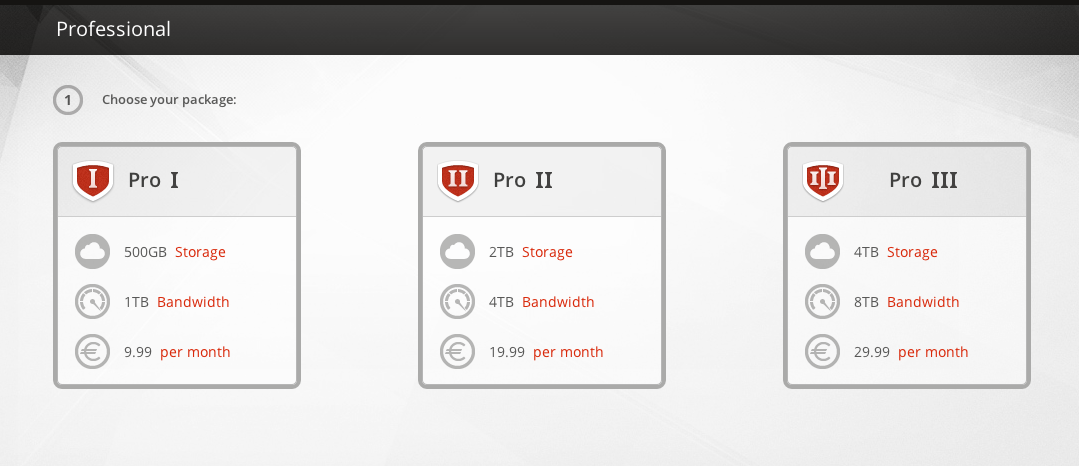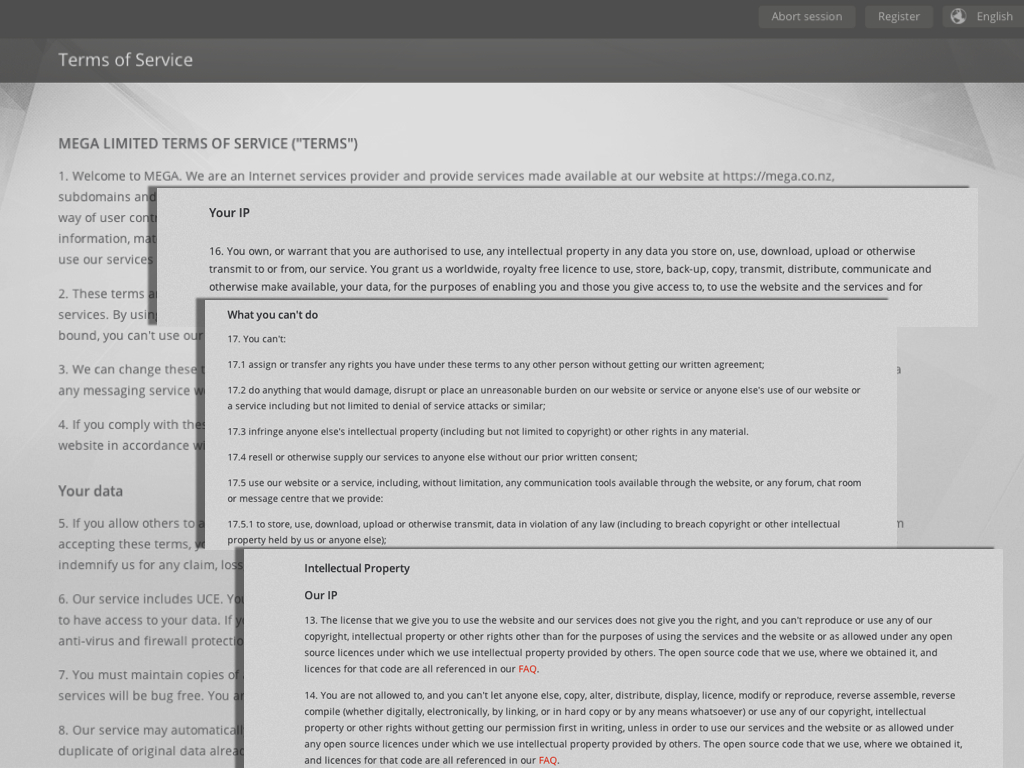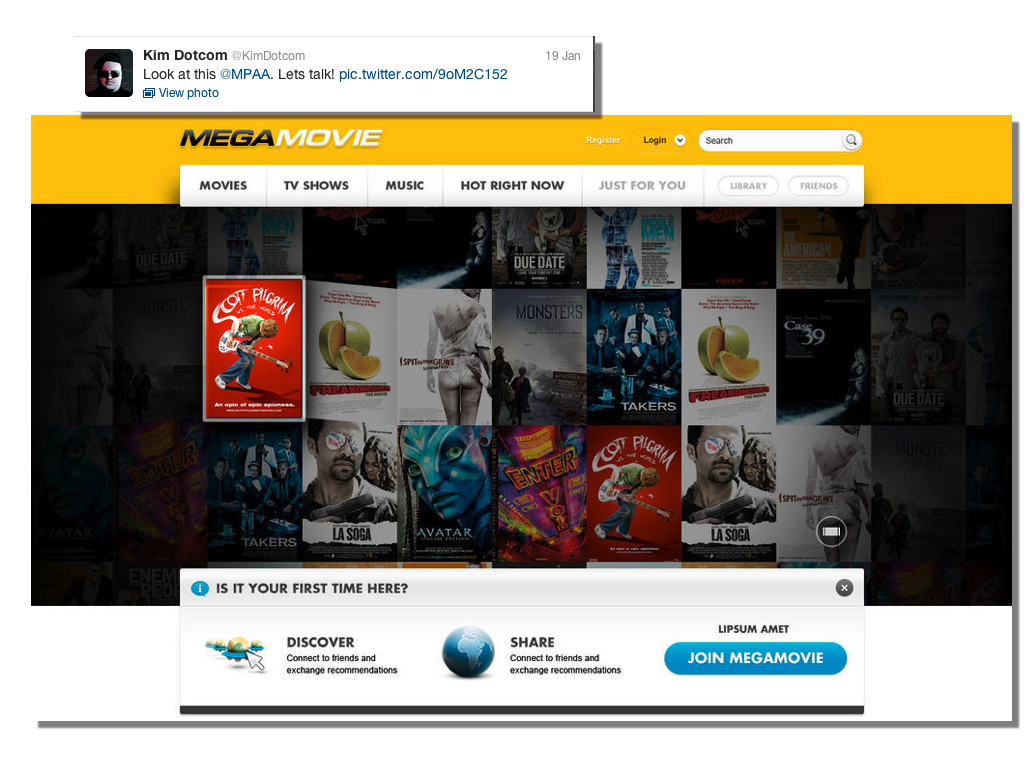 Kim Dotcom’s much ballyhooed new venture, Mega, has gone live. and is, according to a tweet from the mastermind himself, already wildly popular, “250,000 user registrations. Server capacity on maximum load. Should get better when initial frenzy is over. Wow!!!” It’s no great surprise that there’s a lot of early interest in site, but the real question going forward is whether anti-piracy activists should be running scared? For now, it seems too early to tell. The key to whether this new cloud-based file-sharing site will become the new nexus for online piracy depends on what business model is used, and at this point, it’s difficult to decipher exactly how this will all play out.
Kim Dotcom’s much ballyhooed new venture, Mega, has gone live. and is, according to a tweet from the mastermind himself, already wildly popular, “250,000 user registrations. Server capacity on maximum load. Should get better when initial frenzy is over. Wow!!!” It’s no great surprise that there’s a lot of early interest in site, but the real question going forward is whether anti-piracy activists should be running scared? For now, it seems too early to tell. The key to whether this new cloud-based file-sharing site will become the new nexus for online piracy depends on what business model is used, and at this point, it’s difficult to decipher exactly how this will all play out.
 There are already various cloud-based file-sharing sites, similar to the “new” Mega–sites DropBox and YouSendIt that already allow users to easily share large files across the web. However, unlike Kim Dotcom’s now-defunct Megaupload site, these services do not incentivize uploads. In other words, in contrast to cyberlocker favored by pirates, these legit sites don’t offer cash rewards based on the number of times a file is downloaded. As a result, most people who use these cloud-based file-sharing services do so because they have actual business to conduct, or seek to share files with family or friends.
There are already various cloud-based file-sharing sites, similar to the “new” Mega–sites DropBox and YouSendIt that already allow users to easily share large files across the web. However, unlike Kim Dotcom’s now-defunct Megaupload site, these services do not incentivize uploads. In other words, in contrast to cyberlocker favored by pirates, these legit sites don’t offer cash rewards based on the number of times a file is downloaded. As a result, most people who use these cloud-based file-sharing services do so because they have actual business to conduct, or seek to share files with family or friends.
Certainly some file-sharing that’s technically “illegal” takes place, but without cash carrots offered to uploaders, it’s relatively inconsequential in terms of the big picture. The success of DropBox and YouSendIt is not predicated on the need to draw traffic and generate ad clicks. Theirs is a business model that does not incentivize piracy on a viral scale.
Perusing the new Mega website, I found some references to its planned business model, but no mention (yet) of any individual “partner” rewards programs like those found in its previous incarnation. Below is a solicitation for “Mega Storage Node” partners (located outside the United States). This program seems focused on attracting additional host companies that wish to integrate Mega’s infrastructure into their own businesses.
Like Megaupload, Mega also offers tiered “Pro-memberships” which offer users greater storage and speed options. Prices range from $9.99 per month to $29.99 per month.
Although the new site has established its operations (and servers) outside of the United States, Mega’s “Terms of Service” does feature boilerplate language regarding intellectual property and copyright.
Note that Mega’s terms also includes language that includes references to protecting its own IP.
Our IP
13. The license that we give you to use the website and our services does not give you the right, and you can’t reproduce or use any of our copyright, intellectual property or other rights other than for the purposes of using the services and the website or as allowed under any open source licences under which we use intellectual property provided by others. The open source code that we use, where we obtained it, and licences for that code are all referenced in our FAQ.
14. You are not allowed to, and you can’t let anyone else, copy, alter, distribute, display, licence, modify or reproduce, reverse assemble, reverse compile (whether digitally, electronically, by linking, or in hard copy or by any means whatsoever) or use any of our copyright, intellectual property or other rights without getting our permission first in writing, unless in order to use our services and the website or as allowed under any open source licences under which we use intellectual property provided by others. The open source code that we use, where we obtained it, and licences for that code are all referenced in our FAQ.
At the moment the new site, not surprisingly, is running as slow as molasses due to heavy traffic. It remains to be seen if, and how, its presence will impact the online piracy landscape going forward. Right now this new site doesn’t seem all that revolutionary. For the end-user, it’s just another cloud storage solution.
No matter what transpires, Dotcom is clearly relishing his moment back in the spotlight. He’s already busy tweaking Hollywood posting this Tweet and image a couple of days ago. Despite his self-important cockiness, in the grand scheme of things, I don’t think he’ll be getting the last laugh.
Though Dotcom would likely disagree, when U.S. law enforcement took his popular Megaupload offline a year ago, it marked a significant turning point in the battle against online piracy. Since then real progress has been made. Copy-cat sites that modeled the success of Dotcom’s business model closed their doors. At the same time, more options for timely and legitimate online distribution of movies and music emerged–options both profitable for creators and affordable for consumers. Advertisers and payment processors have also stopped partnering with some remaining pirate cyberlocker sites, diminishing their profits and popularity. Other companies, such as Google, have also had to address their role in aiding, abetting and profiting from piracy. Overall, the lure of online piracy as a cottage industry has been greatly diminished.
Maybe Dotcom’s new Mega will be legit, maybe not. The world will be watching, but I’m not too worried. At least not yet.
Originally posted at voxindie.org





